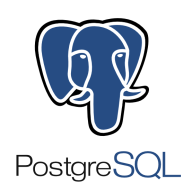

PostgreSQL and MongoDB Enterprise Advanced compete in the database management system category. Based on feature sets and pricing attractiveness, PostgreSQL has the upper hand with its open-source model and robust SQL-compliant features, enhancing its value in structured data management.
Features: PostgreSQL provides a robust SQL-compliant features set, including support for complex queries and procedural languages. It is scalable and versatile, offering JSON support, full-text search, and a powerful indexing system ideal for structured data management. MongoDB Enterprise Advanced is notable for its flexible schema-free architecture, making it excellent for unstructured data handling. It is highly scalable and user-friendly, promoting rapid development and deployment.
Room for Improvement: PostgreSQL can struggle with slower performance on certain queries and lacks built-in multi-master replication. It could also improve in user accessibility. MongoDB faces challenges in real-time data processing and integration with BI tools, and handling highly demanding workloads can be problematic.
Ease of Deployment and Customer Service: PostgreSQL offers various deployment modes including on-premises and cloud options, often requiring technical expertise due to limited official support. While community support is strong, direct technical support requires additional costs. MongoDB Enterprise Advanced provides streamlined cloud-based deployment with integrated support options, although its enterprise options can be expensive.
Pricing and ROI: As an open-source solution, PostgreSQL offers exceptional ROI, requiring investments primarily in skilled personnel. MongoDB offers a free version, but its enterprise features are priced at a premium, which can be cost-prohibitive for smaller businesses. However, it offers significant ROI for projects needing high scalability and flexibility.


MongoDB Enterprise Advanced is a comprehensive platform renowned for its scalability, user-friendliness, and high performance, underpinned by its flexible document-based storage and open-source model. JSON compatibility, clustering, and security elevate its standing among professionals.
The platform facilitates efficient data management through developer-friendly tools and a strong aggregation framework. MongoDB’s no-schema requirement, supported by community expertise, underlines its adaptability. While its sharding capabilities and affordably support large data volumes, there are aspects such as security enhancement and enterprise tool integration that need attention. Indexing and query optimization pose challenges, alongside high costs. Improvements in analytics and UI could advance its infrastructure further.
What are the key features of MongoDB Enterprise Advanced?Industries leverage MongoDB Enterprise Advanced for significant roles in data storage within IoT platforms, healthcare apps, public service monitoring, and big data analytics. Companies in logistics and telecommunications find it instrumental for business process management and video content management, benefiting from its seamless integration and unstructured data support.
PostgreSQL is a versatile and reliable database management system commonly used for web development, data analysis, and building scalable databases.
It offers advanced features like indexing, replication, and transaction management. Users appreciate its flexibility, performance, and ability to handle large amounts of data efficiently. Its robustness, scalability, and support for complex queries make it highly valuable.
Additionally, PostgreSQL's extensibility, flexibility, community support, and frequent updates contribute to its ongoing improvement and stability.
We monitor all Open Source Databases reviews to prevent fraudulent reviews and keep review quality high. We do not post reviews by company employees or direct competitors. We validate each review for authenticity via cross-reference with LinkedIn, and personal follow-up with the reviewer when necessary.